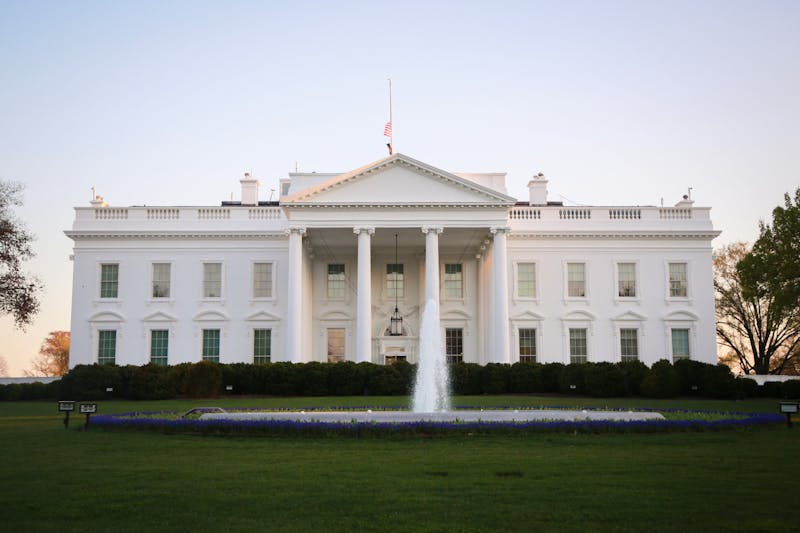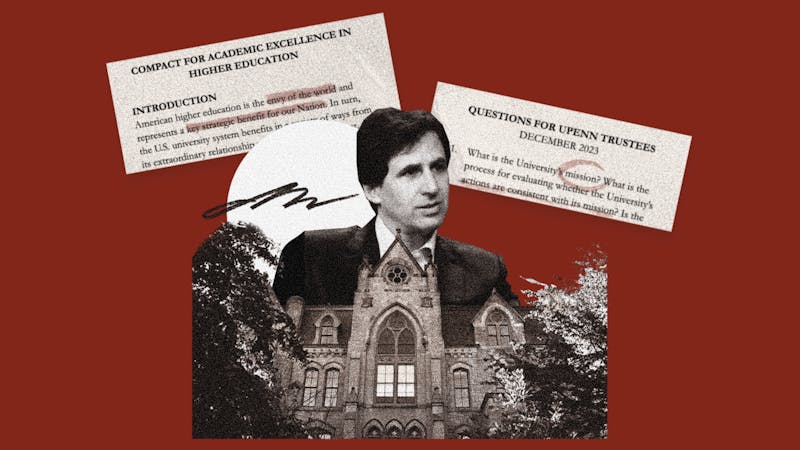
Three months ago, visiting my parents in Texas, I picked up The Houston Chronicle and read a guest column from a local historian about Thomas Jefferson.
It recalled the moment after Jefferson had been elected to a second term when he, Bible under arm, was headed to church. A surprised onlooker (surprised because Jefferson, like many of the founding fathers, was known to be a deist) asked him what he was doing. Jefferson said something to the effect of, "My duty."
The column then used that anecdote to reinterpret Jefferson's 200 year-old letter to the Danbury Baptists in which he confirmed that the First Amendment was intended to build a "wall of separation between church and state." The gist of the column, and an especially popular idea lately, is that although Jefferson and the other founding fathers intended for the state not to interfere with religion, they also would be loathe to see it at war with religion.
What this hints at is something I've lately heard many Republicans say in cases like school vouchers and the posting of the 10 commandments in courthouses and schools, that religion is the lifeblood of America and that our founding fathers would turn in their graves if they saw religion treated this way.
The founding fathers believed in the right to bear arms. The founding fathers believed religion was good. The founding fathers believed in states' rights. The founding fathers believed in whatever it is I'm arguing about.
But Democrats do it too, often while arguing about the same issues. The founding fathers didn't want religion in schools. The founding fathers believed that liberty is more important than order. The founding fathers would have known that pornography is a form of protected speech. The founding fathers believed that what I'm saying is right.
Historically speaking, there are more than a few problems with this reasoning. Most problematic is the latent message behind joining the politicians into one homogeneous body of thinkers: that they supposedly all believed the same thing.
This couldn't be further from the truth.
Between the end of the Revolution and the signing of the Constitution, there was a great deal of wrangling and negotiation the conflicting natures of liberty and order, which our pundits like to throw around every three or four sentences.
Sam Adams, Thomas Jefferson and John Adams were on the side of liberty against order, hoping to prevent tyranny by placing the bulk of power in the legislative branch (which many hoped would be only one, huge body). George Washington and Alexander Hamilton, wary of the sort of carnage that chaos had unleashed on the Appalachian backcountry (and perhaps the riotous fervor that lingered in such places as colonial Boston), fought doggedly for a more powerful executive.
And this wasn't their only ideological scuffle. They disagreed about all kinds of things. But it is their compromise, the Constitution, that has made this country what it is. Their opinions and inclinations and writings and comments on the way to church are entirely irrelevant to contemporary jurisprudence.
Of course, politicos who hark back to the founding fathers are probably only using this conjecture as a euphemism for the Constitution. But, because it's so fun, let's deconstruct it some more anyway.
By this logic, I might go home and say to my wife tonight, "You know, the founding fathers believed that women were subservient to men, so I think you should do whatever I say." Or, even better, we could enact another recount of the 2000 elections, excluding every voter who wasn't a white male landowner. After all, the founding fathers believed that, too.
The Constitution is an amazing document, one of the most important in human history, but reinterpreting it by scrutinizing the lives and thoughts of its writers is dangerous and ridiculous.
When the founders wrote the Bill of Rights, they intended it to only apply to white men like themselves. The freedom of religion certainly would not have included Buddhism or Islam, and on and on and on.
The point of all these words is to propose that whether or not Thomas Jefferson was a devout religionist is irrelevant to current squabbles over church and state, or over the right to bear arms, or over free speech. The interpretation of the Constitution, like any other historical document, depends much more on the situation of now than the situation that created it. Brad Olson is a senior History major from Huntsville, Texas.
The Daily Pennsylvanian is an independent, student-run newspaper. Please consider making a donation to support the coverage that shapes the University. Your generosity ensures a future of strong journalism at Penn.
DonatePlease note All comments are eligible for publication in The Daily Pennsylvanian.







